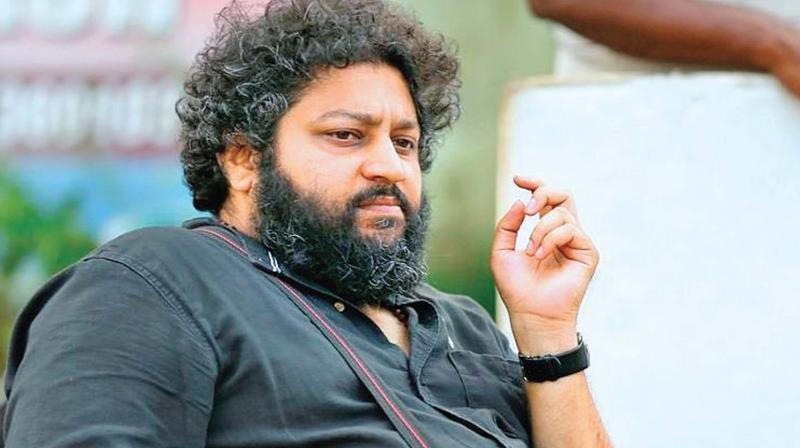Dazzling LJP magic
Lijo Jose Pellissery, fondly known as LJP, is one of the torch bearers of the new wave in Malayalam cinema.;

Cinema is ever-changing and has always been subject to experiments in terms of content and technicality. For the past decade, Malayalam cinema has been witnessing a certain kind of new phase like in the late 70’s and early 80’s. Brimming with new ideas and talents, Malayalam cinema, along with their counterparts in Tamil and Marathi, are driving the new age Indian cinema without getting stuck in the stereotypes of their own making. Various directors have been part of this movement, in particular, Lijo Jose Pellissery, who has set a standard in the industry with a style for himself.
Lijo’s latest hit Ee. Ma. Yau has earned him the award for the Best Director at the International Film Festival of India (IFFI) 2018, while Chemban Vinod was adjudged the Best Actor for his incomparable performance as Eesi. The film had also won Lijo the Kerala State Award for Best Director. The awards underline his prominence in the new wave that the South Indian film industry, especially Malayalam, has been witnessing.
Renowned film critic and writer C.S. Venkiteswaran points out that Malayalam cinema has always been subject to change and witnessing experiments. “The new wave was ever present in Malayalam cinema. But what make the current movement special is the realism and the tendency to break the stereotypical features.
Big stars and their stardom never affected some of these movies that were brought out since the beginning of the new trend.
“Lijo Jose Pellissery is definitely one among the forerunners with his raw and innovative approach in filmmaking. We have had great directors in the past that approached filmmaking realistically. At the moment, I don’t think we are witnessing something new, but in fact there is a change in the techniques used in filmmaking and content wise. Ee. Ma. Yau was a prime example for this and we are not surprised it won two prestigious awards at IFFI.”
In an interview after the release of his first commercially successful film, Amen, Lijo opined that his first two films were experimental because of the way he approached the narration. Though they were realistic, critics like Maneesh Narayanan point out that those films were made before the audiences were ready to accept it. “Those films, especially City of God, were actually realistic, but acceptance level from the common people was not as the director had expected. We cannot put the blame on the viewers because we were not used to that kind of filmmaking.”
Pointing to the filmography of Lijo, Maneesh says there is great progress over the years and Ee. Ma Yau was a prime example of the new wave in Mollywood. “For the past 10-12 years, we have seen that change. The combination of cultural and political defiance against the current issues was very much seen in the films during this period. Considering that, Ee. Ma Yau’s success and Lijo’s crowning as the torch-bearer of current Malayalam cinema are unquestionable and as a film lover it is very satisfactory that film did well at IFFI.”
“His movies are grounded in realties and the audience can relate to them. More importantly, the manner in which the stories are being told, makes them accessible to anyone like never before,” he shares. It takes a lot of courage to make a so-called ‘off-the trend’ film for commercial consumption and even more to convince producers to take the toss. Film directors like Lijo dared to think out of the box and Amen was the first movie that proved his mettle to impress all kinds of movie lovers.
When asked what’s the most interesting factor he witnessed in Ee. Ma Yau, Maneesh says Lijo gives a lot of importance to music in his movies. Lijo was bold enough not to use any songs other than the sound of a broken clarinet in Ee. Ma. Yau. “It takes a lot of effort to do something like that. Unlike other movies, he used natural sounds like, sounds of a broken clarinet, waves and wind. That shows how he evolved as a master craftsman in Malayalam cinema.”
Inspired by one of his favourite directors like Stanley Kubrick, Lijo showed aplomb to take risks and takes new paths to reach his goals. Lijo talks more about the people around him in his films and this quirkiness of the people he and his screenwriters see almost every day is very revealing in his films. The characters reveal themselves as the story progresses unlike the cinema of the past. Each and every character he used in films like Amen, Angamaly Diaries, and Ee. Ma. Yau was unique. When asked about the failure of Double Barrel, Lijo once said he never wanted to impress anyone. Lijo also proved his works are not repetitive too. “As an artist, Lijo has succeeded in making films that would never seem like repetitive,” adds Maneesh.
Maneesh Narayanan says the new revelation in the movie industries like Malayalam, Tamil and Marathi proves that our cinema is becoming global and films like Ee.Ma.Yau and directors like Lijo are worth representing not just Malayalam, but the whole country’s progress in filmmaking in front of the world.

